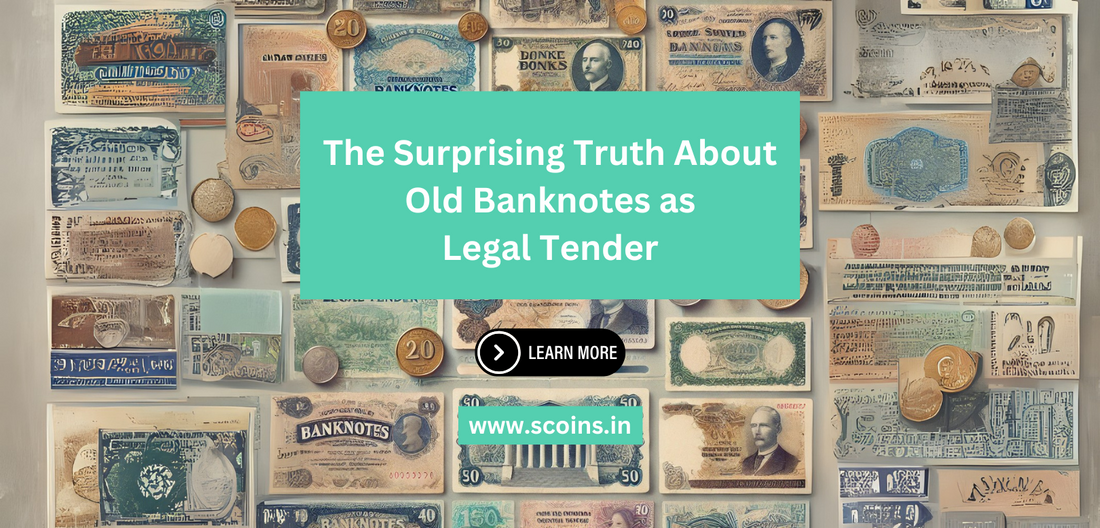
The Surprising Truth About Old Banknotes as Legal Tender
What Does Legal Tender Mean?
Legal tender refers to currency that must be accepted as payment for goods and services within a given jurisdiction. Governments designate specific banknotes and coins as legal tender, which means they have to be accepted in transactions and for settling debts. However, the status of what is considered legal tender can change over time.
Why Do Old Banknotes Lose Legal Tender Status?
Old banknotes may lose their status as legal tender for several reasons:
- Currency Redesign: Central banks periodically redesign their banknotes to incorporate new security features, combat counterfeiting, and modernize the appearance.
- Demonetization: In some cases, governments demonetize older notes to curb black market activity, encourage digital payments, or phase out outdated currency systems.
- Introduction of New Series: When a new series of banknotes is introduced, older series may be gradually withdrawn from circulation and lose their legal tender status.
Examples of Legal Tender Policies for Old Banknotes
- United Kingdom: In the UK, the Bank of England periodically withdraws older series of banknotes, such as the £20 and £50 paper notes, in favor of polymer notes. However, even after old notes lose their legal tender status, they can still be exchanged at the Bank of England for an indefinite period.
- United States: In the U.S., all Federal Reserve notes issued since 1861 remain legal tender. This means you can use even the oldest notes for transactions, though they may be worth more to collectors than their face value.
- India: In 2016, the Indian government demonetized the ₹500 and ₹1,000 notes as part of an anti-corruption initiative. After a set grace period, these notes lost their legal tender status and could no longer be used or exchanged.
- European Union: The European Central Bank (ECB) has gradually phased out older euro notes with updated designs. While older notes remain legal tender for a time, they’re eventually withdrawn from circulation. However, the ECB allows for indefinite exchange of old euro banknotes at national central banks.
What to Do With Old Banknotes?
If you’re holding old banknotes, here’s what you can do:
- Exchange Them: Check if the issuing central bank allows for the exchange of old notes. Most central banks provide this service free of charge.
- Collect Them: Old banknotes can hold significant value for collectors. Rare or historically significant notes might fetch more than their face value in the collector’s market.
- Use Them for Art or Decoration: Even if they’re no longer legal tender, old notes can serve as unique keepsakes or decorative items.
How to Check Legal Tender Status
To confirm whether a banknote is still legal tender, you can:
- Visit the website of the issuing central bank.
- Contact the central bank directly for details about exchange options and deadlines.
- Research specific policies related to the currency in question.
Conclusion
The legal tender status of old banknotes depends on the policies of the issuing central bank and the country’s regulations. While some nations honor old notes indefinitely, others set strict deadlines for exchanges. Whether for practical use, collection, or nostalgia, old banknotes often hold value beyond their monetary worth, making them fascinating artifacts of financial history.
